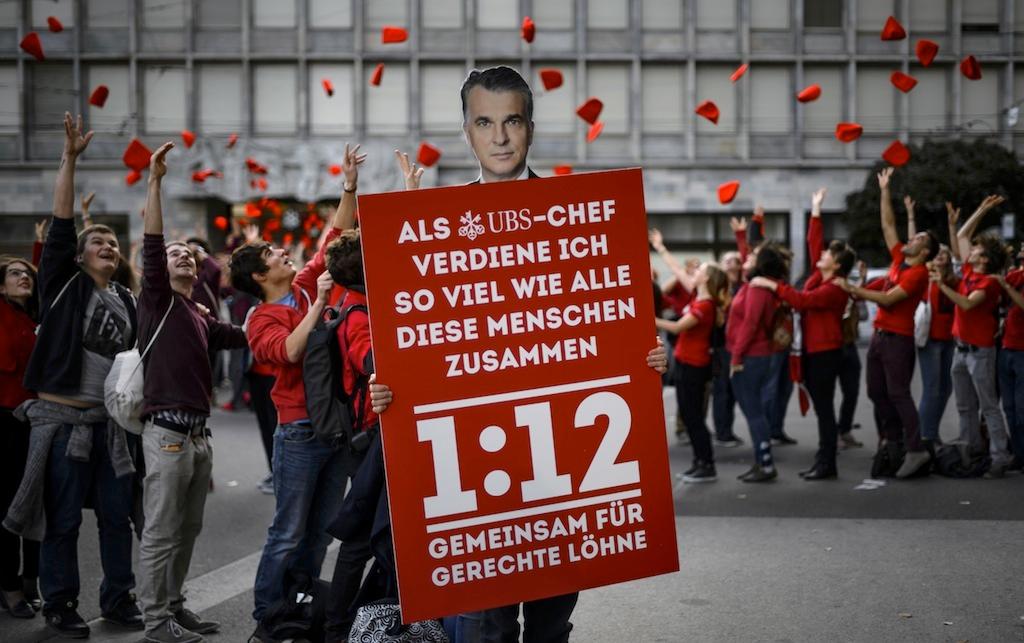Swiss voters reject cap on executive pay
This picture taken on November 2, 2013 shows members of the youth organization JUSO of the Swiss Social Democrats (SP) holding a placard with the face of the CEO of Swiss banking giant UBS Sergio Ermotti, taking part in the centre of Zurich in a demonstration in favour of their initative ‘1:12’ to limit the amount of money companies pay their executives
GENEVA, Switzerland — Swiss voters have rejected a proposal limiting the pay of top business executives.
The referendum proposal known as "1:12," referring to the suggested maximum ratio between an executive's salary and that of the company's lowest-paid worker, failed with only one third of voters in favor of the measure.
The plan was brought to a national vote by a group called the Young Socialists, and was supported by the youth-wing of the Social Democrat party and by trade unions.
"Of course we're disappointed," Young Socialist leader David Roth told Swiss television.
The vote ended six months of debate, campaigning and protests both for and against the measure.
Swiss voters split into left- and right-wing camps, with the left, mainly residing in the French and Italian-speaking regions, often outnumbered.
Older voters were particularly opposed to the idea.
Many in the pro-business nation feared the notion of the state legislating or interfering in the salaries of private businesses.
Instead, that decision should be made by shareholders in the company, those opposed contended.
The ballot initiative, part of Switzerland's direct democracy, lost 65.3 percent to 34.7 percent.
All 26 of the country's cantons (states) voted against it. These Initiatives need a majority of voters and cantons, as well as conform with the country's constitution, in order to be added to law.
The story you just read is accessible and free to all because thousands of listeners and readers contribute to our nonprofit newsroom. We go deep to bring you the human-centered international reporting that you know you can trust. To do this work and to do it well, we rely on the support of our listeners. If you appreciated our coverage this year, if there was a story that made you pause or a song that moved you, would you consider making a gift to sustain our work through 2024 and beyond?
